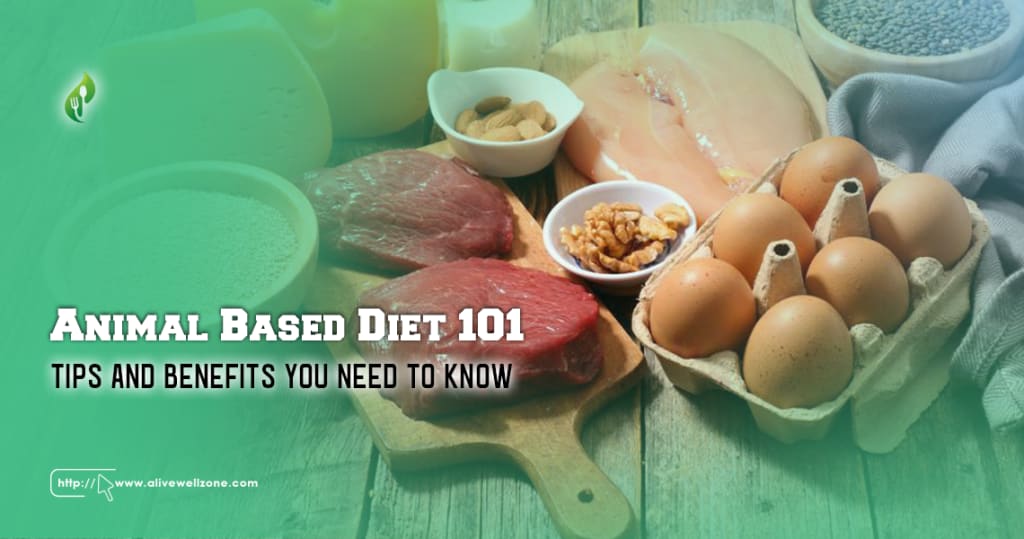
Are you on the lookout for a diet that helps you keep a healthy weight and fills your diet with vital nutrients? An animal based diet could be just what you need. It centers on animal products and offers many health benefits that you might not get from plants alone.
Besides, you should know how valuable it is to add foods rich in nutrients from animals to your diet. These aren't just full of vitamins and minerals; they also give you the high-quality protein necessary for your body to work well.
Today, you'll see how switching to a diet focused on animal products can improve your health, help you manage your weight, and lessen inflammation. We'll walk you through the basics of this diet, helping you make choices that are good for your health.
What is an Animal Based Diet?
An animal-based diet includes meat, seafood, organ meats, and selectively includes fruits, honey, and squashes. It draws inspiration from pre-agricultural eating habits, combining aspects of primal and carnivore diets with a focus on nutrient-dense foods.
This way of eating is becoming popular for its emphasis on animal products full of nutrients, especially organ meats. It looks back to the diets of our ancestors who hunted and gathered their food, incorporating both meat-heavy and some plant-based foods.
This approach updates traditional dietary habits for today, with a special emphasis on the nutrient-packed organ meats that were highly valued by early humans.
Animal Based Diet Food List
Here are the foods that you’ll see in an animal based diet food list
- Organ meats: Livers, brains, hearts, and intestines
- Red meat: Beef, lamb
- Fish: Alaskan salmon, herring, cod, mahi-mahi, trout, mackerel, sardines
- Poultry: Chicken, turkey, duck, quail, geese, and pheasants
- Sauce or gravy: Made from meat and butter, no flour allowed
- Lard
- Eggs
- Butter
- Bone marrow
- Bone broth
- Salt and pepper
- Water
Benefits of Animal Based Diet
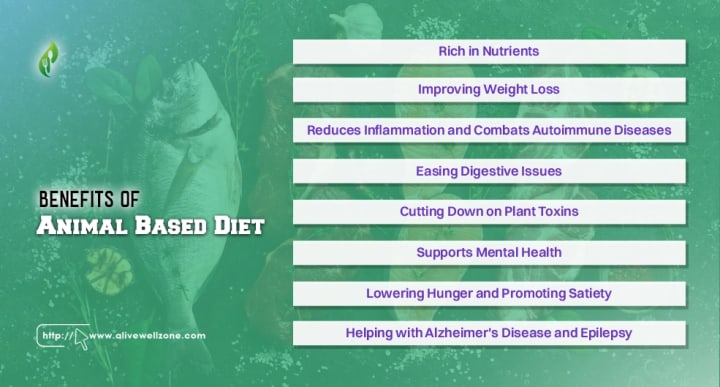
Adopting an animal-based diet brings us back to eating the nutrient-rich foods our bodies were originally designed to consume, offering several advantages —
Rich in Nutrients
Foods in an animal-based diet pack a more potent nutrient punch, both in the variety and amount of nutrients they provide and in how easily our bodies can absorb these nutrients. This advantage is often referred to as "meat efficiency."
Contrary to the widespread belief in the necessity of a "balanced diet" that includes plants, it turns out that animal products such as meat, eggs, and full-fat dairy are nutritionally superior. These foods offer much more than just fat and protein, debunking the common misconception that they are limited in nutritional value.
Improving Weight Loss
Switching to an animal-based diet can help you lose weight by cutting down on carbs and focusing on healthy fats and proteins. In fact, losing weight brings several health benefits, such as reducing inflammation in conditions like arthritis. This happens because of the positive changes in your body's mechanics and chemistry.
A study in 2022 found that combining a low-carb diet with omega-3 supplements can significantly reduce body fat in people who are overweight. Moreover, if you’re concerned about your weight, try the fat burning foods for weight loss.
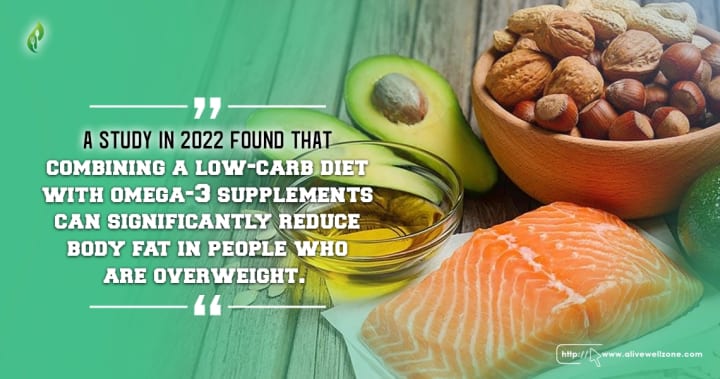
Reduces Inflammation and Combats Autoimmune Diseases
An animal-based diet gets rid of processed foods, which are a big part of the unhealthy Standard American Diet. Processed foods, along with sugars, vegetable oils, and grains, are known to cause chronic inflammation. This inflammation is at the heart of many modern illnesses, including
- Heart disease
- Type 2 diabetes
- High blood pressure
- Dementia
- Certain types of cancer
- Autoimmune diseases
Autoimmune conditions can range from digestive disorders and osteoporosis to infertility. By avoiding these inflammatory foods, an animal-based diet can help protect against these health issues.
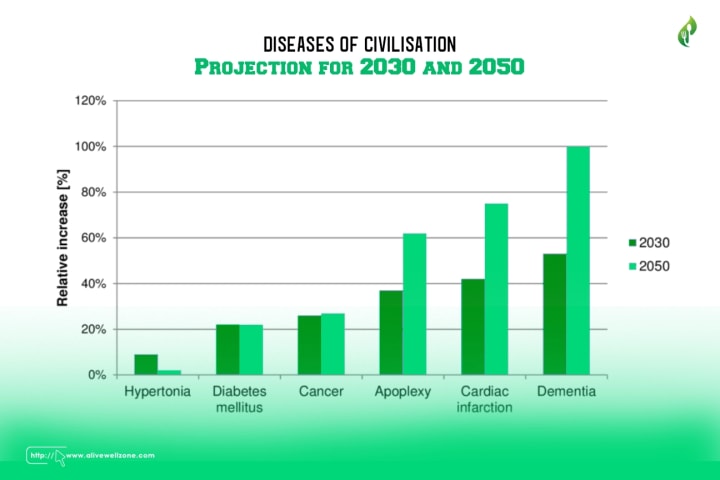
Easing Digestive Issues
Switching to an animal-based diet can help solve digestive problems. This diet cuts out foods high in FODMAPs and plant compounds like lectins, oxalates, and phytates, which can harm your gut lining and lead to leaky gut. Instead, animal-based foods are rich in vitamins A and D.
These vitamins are good for your gut bacteria and can help prevent inflammatory bowel diseases and leaky gut. Not getting enough vitamin D can weaken your gut's defenses, making issues like inflammatory bowel disease more likely.
By eating foods like fatty meats and organ meats, you get plenty of vitamins that dissolve in fat, which can fix these deficiencies. Foods such as eggs and beef are also great sources of glutamine, an amino acid that helps maintain the barrier in your intestines. It keeps harmful substances from getting into your bloodstream.
Cutting Down on Plant Toxins
An animal-based diet greatly reduces or even gets rid of your body's exposure to many plant toxins and anti-nutrients. These include phytic acid, which blocks your body from absorbing important vitamins and minerals.
Long-term exposure to plant toxins like oxalates, histamines, and others, along with anti-nutrients such as lectins, can lead to allergies, leaky gut, autoimmune diseases, and ongoing inflammation.
Supports Mental Health
Research shows that eating meat and animal products can help protect against mental health problems like depression and anxiety. In 2021, two comprehensive reviews of studies involving nearly 600,000 people found that vegetarians often reported higher levels of depression and anxiety compared to those who eat meat.
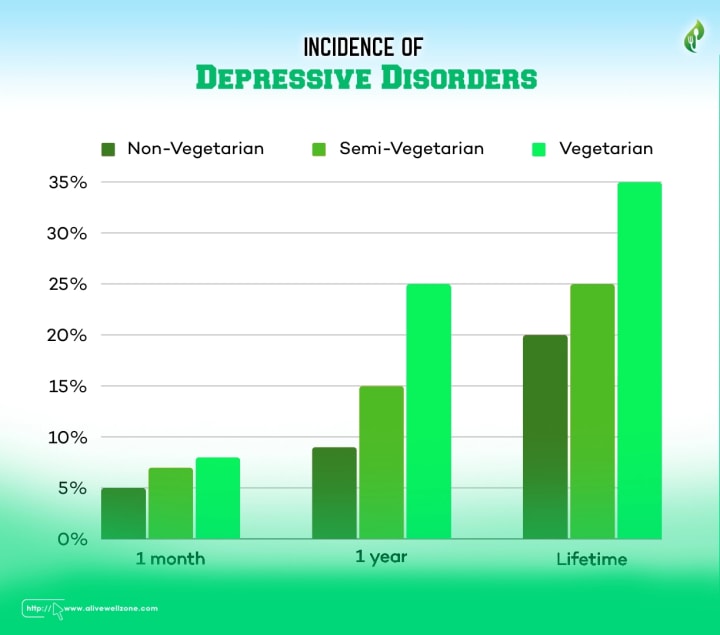
Lowering Hunger and Promoting Satiety
A study in 2022 involving 17 men compared the effects of high-protein diets with periods of high and moderate carbohydrate intake. During the phase with lower carbs, participants reported feeling significantly less hungry.
Another study in 2008 discovered that diets high in protein but low in carbs, known as ketogenic diets, were more effective at reducing hunger than diets with moderate carbs.
Animal-based diets, which are rich in protein, help you feel fuller for longer. They can also lower the levels of ghrelin, the hormone that makes you feel hungry. This means you might eat less and potentially lose weight.
A 2019 study found that a ketogenic diet could increase muscle mass while reducing inflammation and oxidative stress by making you feel more satisfied and less hungry, especially in people with MS.





Comments (1)
It would be helpful if the article could provide a balanced perspective by discussing the potential drawbacks or considerations associated with an animal-based diet, such as the environmental impact or the potential health risks associated with excessive consumption of certain animal products. https://a-smallworldcup.com